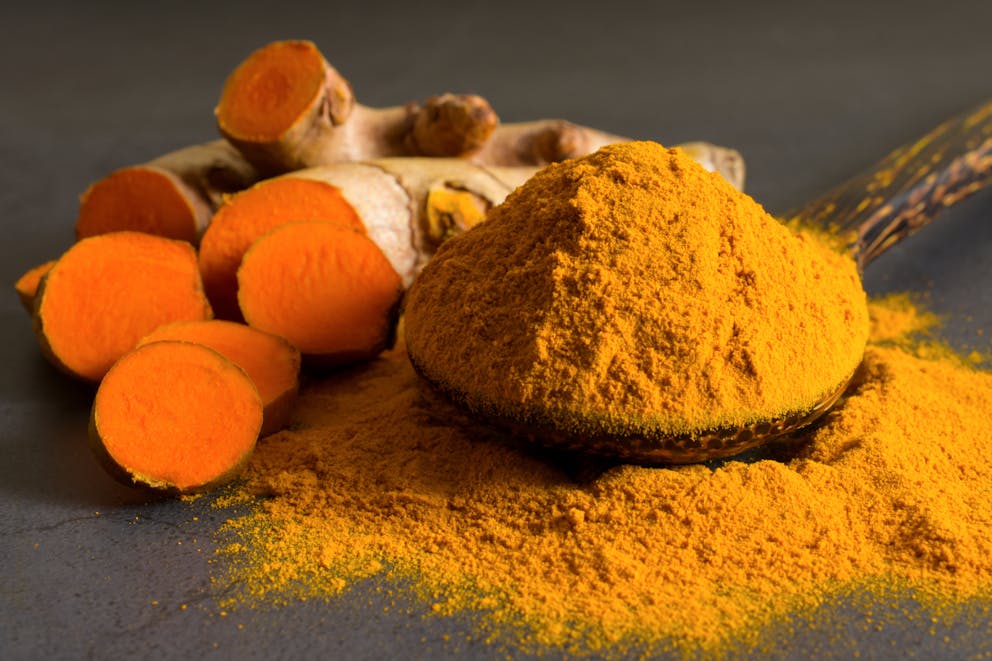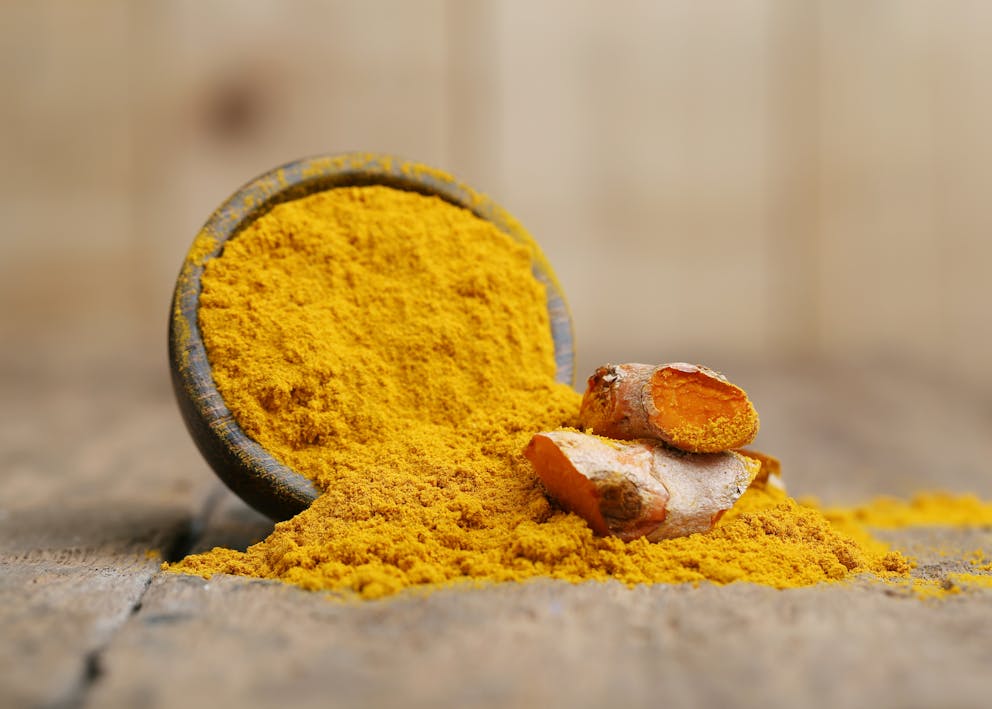Cooking and Heating Turmeric Enhances Nutrients

25 Top Home Remedies That Really Work
Explore powerful home remedies for common health issues
Discover how to use everyday household ingredients to address minor ailments
Get practical tips for the safe and effective use of home remedies

25 Top Home Remedies That Really Work
Explore powerful home remedies for common health issues
Discover how to use everyday household ingredients to address minor ailments
Get practical tips for the safe and effective use of home remedies

25 Top Home Remedies That Really Work
Explore powerful home remedies for common health issues
Discover how to use everyday household ingredients to address minor ailments
Get practical tips for the safe and effective use of home remedies

25 Top Home Remedies That Really Work
Explore powerful home remedies for common health issues
Discover how to use everyday household ingredients to address minor ailments
Get practical tips for the safe and effective use of home remedies

25 Top Home Remedies That Really Work
Explore powerful home remedies for common health issues
Discover how to use everyday household ingredients to address minor ailments
Get practical tips for the safe and effective use of home remedies

25 Top Home Remedies That Really Work
Explore powerful home remedies for common health issues
Discover how to use everyday household ingredients to address minor ailments
Get practical tips for the safe and effective use of home remedies

25 Top Home Remedies That Really Work
Explore powerful home remedies for common health issues
Discover how to use everyday household ingredients to address minor ailments
Get practical tips for the safe and effective use of home remedies

25 Top Home Remedies That Really Work
Explore powerful home remedies for common health issues
Discover how to use everyday household ingredients to address minor ailments
Get practical tips for the safe and effective use of home remedies

25 Top Home Remedies That Really Work
Explore powerful home remedies for common health issues
Discover how to use everyday household ingredients to address minor ailments
Get practical tips for the safe and effective use of home remedies

25 Top Home Remedies That Really Work
Explore powerful home remedies for common health issues
Discover how to use everyday household ingredients to address minor ailments
Get practical tips for the safe and effective use of home remedies

Beginner’s Guide to Healthy Keto & Intermittent Fasting
Receive a step-by-step guide to starting Healthy Keto® and intermittent fasting
Learn about foundational principles and best practices for beginners
Get detailed visual guidance on portion sizes and meal composition
Discover how to set achievable goals and monitor your progress
Find practical tips for overcoming common challenges and staying motivated

Beginner’s Guide to Healthy Keto & Intermittent Fasting
Receive a step-by-step guide to starting Healthy Keto® and intermittent fasting
Learn about foundational principles and best practices for beginners
Get detailed visual guidance on portion sizes and meal composition
Discover how to set achievable goals and monitor your progress
Find practical tips for overcoming common challenges and staying motivated

Beginner’s Guide to Healthy Keto & Intermittent Fasting
Receive a step-by-step guide to starting Healthy Keto® and intermittent fasting
Learn about foundational principles and best practices for beginners
Get detailed visual guidance on portion sizes and meal composition
Discover how to set achievable goals and monitor your progress
Find practical tips for overcoming common challenges and staying motivated

Beginner’s Guide to Healthy Keto & Intermittent Fasting
Receive a step-by-step guide to starting Healthy Keto® and intermittent fasting
Learn about foundational principles and best practices for beginners
Get detailed visual guidance on portion sizes and meal composition
Discover how to set achievable goals and monitor your progress
Find practical tips for overcoming common challenges and staying motivated

Beginner’s Guide to Healthy Keto & Intermittent Fasting
Receive a step-by-step guide to starting Healthy Keto® and intermittent fasting
Learn about foundational principles and best practices for beginners
Get detailed visual guidance on portion sizes and meal composition
Discover how to set achievable goals and monitor your progress
Find practical tips for overcoming common challenges and staying motivated

Beginner’s Guide to Healthy Keto & Intermittent Fasting
Receive a step-by-step guide to starting Healthy Keto® and intermittent fasting
Learn about foundational principles and best practices for beginners
Get detailed visual guidance on portion sizes and meal composition
Discover how to set achievable goals and monitor your progress
Find practical tips for overcoming common challenges and staying motivated

Beginner’s Guide to Healthy Keto & Intermittent Fasting
Receive a step-by-step guide to starting Healthy Keto® and intermittent fasting
Learn about foundational principles and best practices for beginners
Get detailed visual guidance on portion sizes and meal composition
Discover how to set achievable goals and monitor your progress
Find practical tips for overcoming common challenges and staying motivated

Beginner’s Guide to Healthy Keto & Intermittent Fasting
Receive a step-by-step guide to starting Healthy Keto® and intermittent fasting
Learn about foundational principles and best practices for beginners
Get detailed visual guidance on portion sizes and meal composition
Discover how to set achievable goals and monitor your progress
Find practical tips for overcoming common challenges and staying motivated

Beginner’s Guide to Healthy Keto & Intermittent Fasting
Receive a step-by-step guide to starting Healthy Keto® and intermittent fasting
Learn about foundational principles and best practices for beginners
Get detailed visual guidance on portion sizes and meal composition
Discover how to set achievable goals and monitor your progress
Find practical tips for overcoming common challenges and staying motivated
While turmeric is known as a powerful health food, not many people understand that its health-supporting properties can be boosted by certain preparation techniques.
Learn about turmeric, how heat affects it's properties, and how to consume it to gain the most benefits possible.
The Power of Turmeric in Your Diet
Turmeric, celebrated for its striking hue and distinct taste, has been a part of meals around the globe for years. But beyond the kitchen, it holds immense health benefits.
Turmeric is highly sought-after for its anti-inflammatory properties, making it a popular natural remedy for various ailments. You can easily find this golden spice not only in food but also in drinks, supplements, and teas due to its medicinal prowess.
Heating The Goodness Of Turmeric
One question that arises frequently: does heating destroy these beneficial compounds? While many nutrients are sensitive to heat exposure, turmeric phytonutrients are resilient under high temperatures.
This surprising fact goes against common misconceptions about nutrient degradation due to cooking or boiling processes. So, next time you're making your favorite curry or soup, adding some heated turmeric will still give your dish that healthy kick it needs.

Debunking the Myth: Heat and Turmeric
The notion that heating turmeric destroys its beneficial phytonutrients is a common myth. Contrary to popular belief, heating turmeric can be helpful. Cooking can enhance some of these nutrients.
A study found that roasting, boiling, and cooking turmeric at 180 degrees Celsius (356 degrees Fahrenheit) for 70 minutes didn't destroy its antioxidants but amplified them.
So, next time you add this golden spice to your dishes, remember that you are enhancing flavor and nutrient value.
Understanding the Impact of Heat on Nutrients
Curcumin, a compound with medicinal properties in turmeric, is known for its powerful anti-inflammatory and antioxidant effects.
Heat helps release these health-promoting substances, making them more available for absorption by our body. Hence, contrary to popular belief, heat enhances turmeric's nutritional profile instead of degrading it.
The Science Behind Cooking Turmeric
Many believe that heating turmeric might kill its beneficial properties. But, contrary to this belief, a study revealed something astonishing.
The Resilience of Turmeric's Antioxidants
Turmeric is packed with antioxidants, which are pretty resilient. The study showed that roasting, boiling, and cooking at high temperatures didn't destroy them but boosted their power.
Furulic Acid - The Skin Protector
Besides enhancing the antioxidant potency, heat also amplifies furulic acid in turmeric. This compound helps protect our skin against sun damage.
Scientists roasted, boiled, and cooked turmeric at 180 degrees Celsius (356 degrees Fahrenheit) for 70 minutes during the experiment. Despite this intense treatment, ferulic acid remained stable and ready to help your skin.
The Role of 4-Vinyl Guaiacol in Turmeric
When you cook turmeric, a compound called 4-vinyl guaiacol comes to the fore.
How 4-Vinyl Guaiacol Boosts Antioxidant Defense
This tiny powerhouse activates NRF2, which helps reduce cellular stress.
But that's not all. By activating NRF2, 4-vinyl guaiacol also boosts our body's antioxidant defense mechanism.
The Power of Valinin in Turmeric
Ever wonder about the secrets hidden within turmeric benefits? Valinin is a potent antioxidant also found in vanilla. This dynamic compound has a remarkable dual role: anti-inflammatory and antimicrobial.
Heat enhances its powers. Studies have shown valine becomes more effective when you cook with turmeric.
The Dual Role of Valinin - Anti-Inflammatory and Antimicrobial
If you've got some spicy yellow goodness on your plate, you won't need to worry about inflammation or harmful microbes. When added to meals, heated turmeric not only adds flavor but also provides health benefits.
Incorporating Turmeric into Your Cooking
Integrating turmeric into your meals doesn't have to be complicated. A pinch here and there can work wonders, thanks to its potent health benefits.
Sprinkle it over roasted vegetables, or mix it with your scrambled eggs. It's also perfect for spicing up soups and stews.
Making Turmeric a Staple in Your Kitchen
You don't need an exotic recipe book to use turmeric; everyday dishes will suffice. From smoothies to casseroles, this golden spice is ready for action.

The Heat-Friendly Nature of Turmeric
Contrary to popular belief, heating turmeric may enhance its nutrients rather than destroy them.
A dash of black pepper boosts absorption, too.
Conclusion
Turmeric's vibrant color and distinct flavor not only enhance culinary experiences but also offer a plethora of health benefits. Contrary to common misconceptions, heating turmeric can actually amplify its medicinal properties, making it more accessible for absorption by the body.
Studies have shown that cooking turmeric can enhance its antioxidant potency, release beneficial compounds like curcumin and ferulic acid, and activate health-promoting molecules such as 4-vinyl guaiacol and valinin.
Therefore, incorporating heated turmeric into everyday cooking can be a simple yet effective way to harness its therapeutic potential and support overall well-being. So, the next time you're in the kitchen, don't hesitate to sprinkle some turmeric into your favorite dishes and reap the rewards of this golden spice.
Supporting Data
Previous blog
Calcium and Your Immune System: IMPORTANTNext blog
Is Coconut Milk Keto-friendly?Tags

Popular
08/21/2024
55K views
02/23/2025
46.3K views
11/18/2024
277.5K views
03/18/2024
11/21/2022




